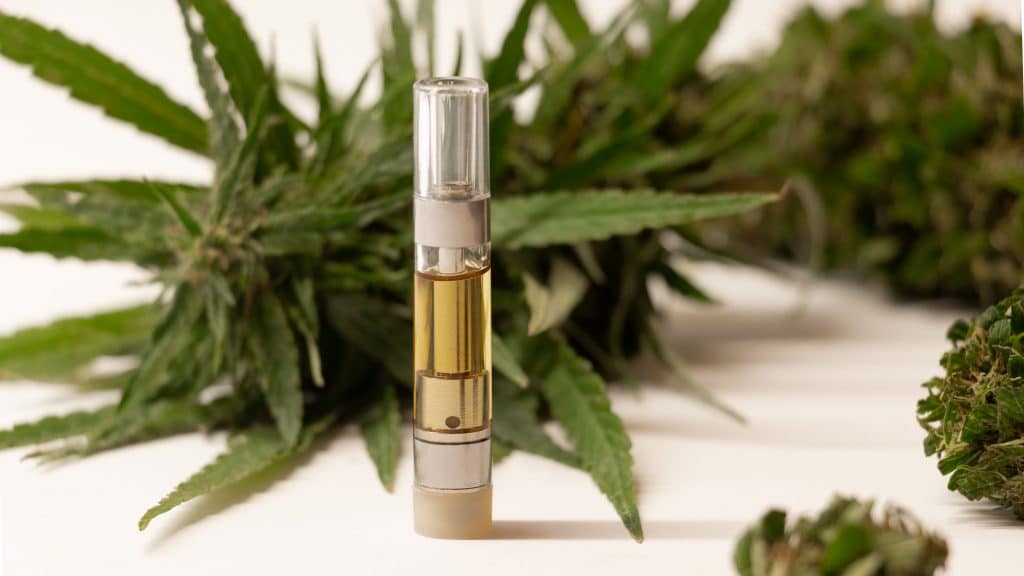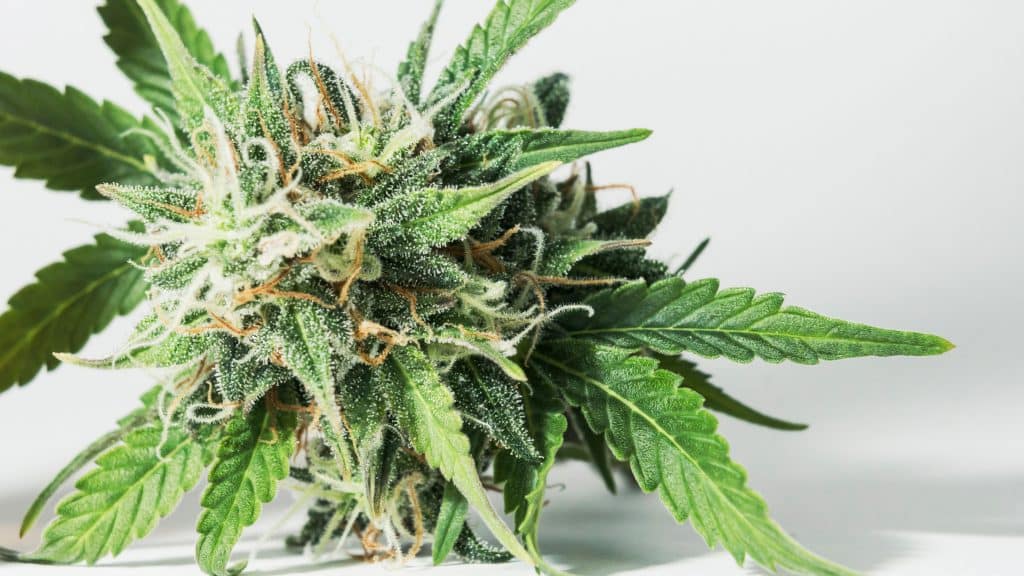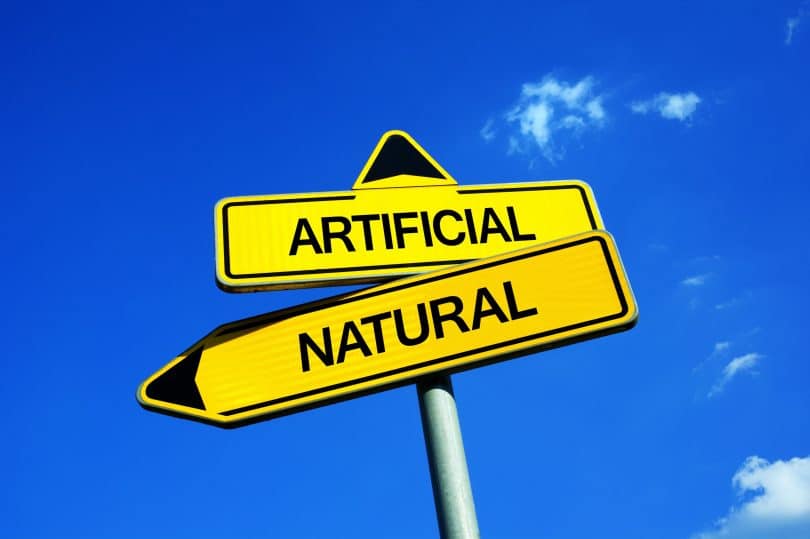It’s been an ongoing battle for a couple years now, with one side (the industry) claiming synthetic (hemp-derived) cannabinoids are legal, and the other (the government) saying they are not. Now, we have a little more clarity on the legal front, which backs up what is consistently said. The DEA recently made a statement that synthetic cannabinoids are illegal, even if hemp-derived.
What are synthetic cannabinoids?
Synthetic cannabinoids can be looked at two ways, and its up for debate how illegal they are. One is that they’re compounds that never existed in nature, and were just made in a lab. When we think of the word ‘synthetic’, that’s the general thought. But there’s another way to see synthetics. If the parts to build something are extracted from a plant, but then go through some sort of synthetic processing, or are put together with other parts that are synthetic; can the product be considered natural? Unfortunately, the US rarely regulates the term.
Truth is, there isn’t a ‘standard’ definition for ‘synthetic cannabinoid.’ Nor, for ‘natural’. Does it mean the whole thing is synthetic? Does it mean part of it is synthetic? Does it mean that at some stage synthetic processing is used? I don’t know because no one does. Far as I can tell, if comparing it to where we do have regulation, like ‘organic‘ regulation, or ISO regulation (International Organization for Standardization), for food or cosmetics, once something unnatural is involved (or involved past a point), it changes the definition.
Right now, the best I can say is that a synthetic cannabinoid relates to any cannabinoid with some amount of synthetic parts or processing, regardless of whether its capable of showing up in nature on its own; but I’m not the authority. Sure, something like delta-8 is naturally-occurring, but not in high enough amounts to extract for product production. It therefore requires synthetic processing for pretty much anything sold. Does it matter if it shows up in nature if we’re using a synthetic version?
Cool to have you with us. We’ve got the Cannadelics Weekly Newsletter to get you email updates; and which comes with loads of promos for cannabis buds, vapes and related equipment, edibles, smoking paraphernalia, cannabinoid compounds (HHC, delta-8), and too much more. Head our way for all your cannabis-related shopping!
When it comes to the cannabinoid industry, this becomes problematic due to the definition of hemp; a definition that seems to stipulate any product must come from the plant directly, to be legal. As only ‘hemp’ by definition was legalized, anything that doesn’t fit into the definition, is not considered ‘hemp’, which implies illegality. What about products for cosmetics, food, medication, or treatment of any kind? FDA maintains control, so trying to sort out a hemp definition, or a synthetics definition, doesn’t even matter.
Recent DEA announcement
The back and forth is a little silly, although, to be fair, none of these compounds seem to pose much threat (the government is cool with opioids, remember). Their main ruling-out is more likely a desire to cut into a black market that the government doesn’t profit from, than the oft-touted government line that they’re dangerous (I mean, lowering guidelines for prescribing opioid medications? Come on…)
Are these synthetic cannabinoids a problem? It’s a dirty market sure, but as very few health issues seem to relate to compounds, and instead have to do with things like additives (which can be regulated out to produce cleaner products), the government line about danger is a bit misplaced. Perhaps just a move of subterfuge to get eyes away from the government’s own complicity in the opioid issue, which its involved in by continuing to allow them through regulation. But this article isn’t about whether we agree, its about the fact the government did make clear its position, even if we don’t agree.
Recently the government made an action to back up what it already said time and time again. On February 13th of this year, as reported by Marijuana Moment, the DEA zeroed in specifically on delta-8 THC-O and delta-9 THC-O, along with other synthetic cannabinoids, reminding that they’re illegal. The DEA says both these compound fail to meet the definition of hemp, and are therefore Schedule I controlled substances.
The DEA didn’t make a formal announcement. It did what it, and other government agencies, have done a couple times before; and simply replied to a person/organization that asked a question. In all cases, the answer was then posted as if to say the government organization had made a formal announcement, which it did not. In this case, the person asking the question was attorney Rod Kight, who wrote to the DEA last year about delta-8 THC-O and delta-9 THC-O legality, with a recent follow-up in 2023.
The DEA finally answered via letter by Chief of DEA Drug & Chemical Evaluation Section, Terrence L. Boos, on February 13th. It stated “Delta-9-THCO and delta-8-THCO are tetrahydrocannabinols having similar chemical structures and pharmacological activities to those contained in the cannabis plant.” And that they “do not occur naturally in the cannabis plant and can only be obtained synthetically, and therefore do not fall under the definition of hemp.”

Following this, on his blog post, Kight stated: “Although I do not always agree with the DEA’s view on cannabis matters, I agree with this opinion and, frankly, am not surprised. This is what I have been saying for a while.” He continued, “I have been concerned about the proliferation of THC acetate ester (THCO) for a while. It has always been my view that THCO is a controlled substance under federal law. Although it can be made from cannabinoids from hemp, THCO is not naturally expressed by the hemp plant. It is a laboratory creation that does not occur in nature, at least not from the hemp plant.”
Did anything new happen? Nope. Did the DEA make a formal announcement? Nope. Did it say anything it hasn’t said before? Nope. While the DEA itself is pretty bad at responding to many things related to drugs, even to the point of getting sued (lets remember it took Kight a year to get a response), it does seem that sometimes the issue is not liking the answer, more than not getting one.
When else did a government response make headlines as an announcement?
Twice in 2021, for two different reasons. One was about the legal nature of synthetic delta-8 THC (which is pretty much any delta-8 used in products), and CBD, which is often assumed to have a greater level of legality than it actually does.
In terms of delta-8 THC, in September, 2021, the Alabama Board of Pharmacy via Donna C. Yeatman, R.Ph., the executive secretary, requested an answer from the DEA about the legality of delta-8, since there was so much contention on the subject in the media. The DEA didn’t say anything new, just repeated what it has before. It relayed once again that any synthetic does not fit under the definition of hemp.
Yeatman’s original letter was dated August 19th, 2021, and the response was dated September 15th, 2021. The response brought Yeatman through a logical process, starting with “D8-THC is a tetrahydrocannabinol substance contained in the plant Cannabis sativa L. and also can be produced synthetically from non-cannabis materials.” Then after explaining THCs, and their place in Schedule I, it continued, “Thus, D8-THC synthetically produced from non-cannabis materials is controlled under the CSA as a “tetrahydrocannabinol.””
Realistically, if delta-8 could be appropriately sourced to not require synthetic processing, then it would fit the farm bill definition of hemp. But we know delta-8 only exists in minuscule amounts, and requires the kind of processing for product production, that takes it away from this definition. This doesn’t mean that it’s not ‘hemp-derived’, but that term doesn’t rule out synthetics at all. Of course, should the government ever want to clearly define what constitutes ‘synthetic’ when it comes to cannabinoids, we could have fewer of these arguments.

Another government response statement about CBD
The second example of a letter response from a government agency detailing an already stated policy, had to do with CBD and how it can be used. It happened in regards to Steve Brown, of the Minnesota Cannabis Association board, and a conversation about tinctures and processing facilities that happened in a meeting. Said Brown, “They stated later in the meeting that tinctures are illegal… Then this morning I received information from the Minnesota Board of Pharmacy, sent by a colleague.”
What did it say? It contained a responses by the US’s Department of Agriculture via a representative, saying “The problem here is some of the products you’re mentioning here, Steven, would not be legal food by our definition… The reason for that is all these other cannabinoid products are governed by the Board of Pharmacy.”
Why does this matter? Because a ‘medicine’ (anything to treat something, including supplements), a food product, and a cosmetic, all must get approval by the FDA. It gets worse in terms of ‘supplements.’ Once an FDA approved medication is there, any active ingredient used, is barred from advertisement as a nutritional supplement. Meaning since the FDA-approved a CBD medication, Epidiolex, its not legal to sell CBD for any kind of supplemental, or medical use. As in, its not legally cleared to be used for internal products, or to treat anything, or for cosmetics products, or for food products.
If you caught on, it means it doesn’t matter whether the DEA says its illegal or not. Not when it comes to any consumer products in the categories above. Since all that is regulated by the FDA, whether delta-9-THCO, delta-8-THCO, CBD, or any other synthetic cannabinoids are illegal in general, has no bearing on whether they’re legal in products. Which makes any product containing cannabis compounds, automatically illegal, whether synthetic or not. This is actually a statement I can make, because the FDA never regulated a consumer product for these uses with any cannabis compound; aside from pharmaceutical medications.
In all of these cases, the government agency didn’t make a statement to the press, but had the answer to their question promoted as an answer to the general question people fight over. And in all cases, all that was done, was to point out already existing information to the entities who were confused. Perhaps it would be better if the public understood the difference between general legality (DEA) and product legality (FDA) when it comes to cannabis.
Conclusion
This isn’t actually news, but it is interesting to see the confusion that continues on the topic. We might not agree with the DEA, USDA, or FDA on these matters, but there are answers already for much of it. Are synthetic cannabinoids illegal? Maybe. Probably. But while that answer is murkier due to missing and finite definitions, whether the products that involve these compounds are technically legal or not, is less debatable. Even if we don’t agree.
Hello everyone! Welcome to Cannadelics.com; an independent news site in the cannabis and psychedelics spaces, which reports on the most fascinating stories going on today. Chill with us a lot to remain in-the-loop with what’s going on, and subscribe to the Cannadelics Weekly Newsletter, so you’re never late to get the news.









